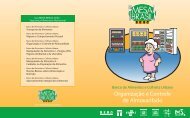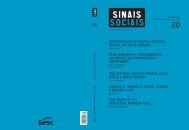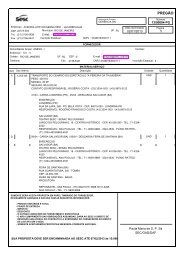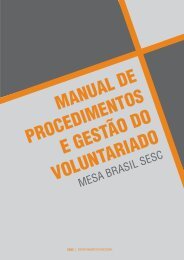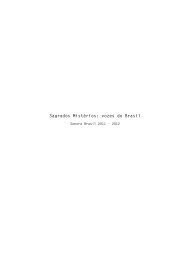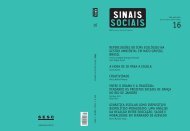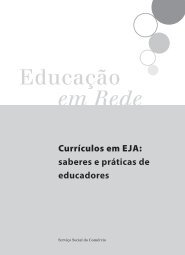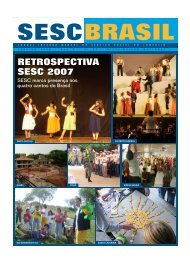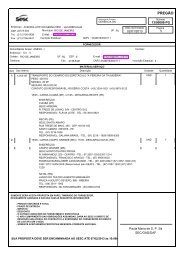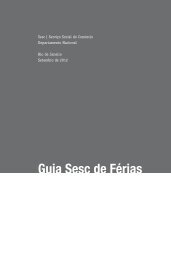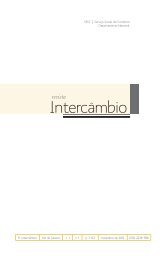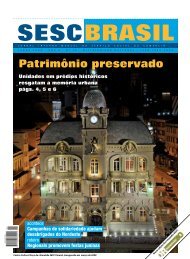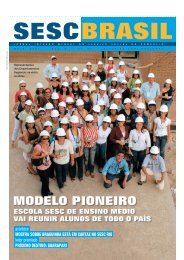BIBLIOTECA E CIDADANIA ESCOLA E SAMBA: SILÊNCIO ... - Sesc
BIBLIOTECA E CIDADANIA ESCOLA E SAMBA: SILÊNCIO ... - Sesc
BIBLIOTECA E CIDADANIA ESCOLA E SAMBA: SILÊNCIO ... - Sesc
You also want an ePaper? Increase the reach of your titles
YUMPU automatically turns print PDFs into web optimized ePapers that Google loves.
Este artigo busca desenvolver argumentos prós e contra a legitimidade da distinção<br />
entre linguagem, pensamento e mundo. Se essa distinção se justifica em<br />
certa medida do ponto de vista da análise do discurso declarativo, ela se torna<br />
mais problemática assim que consideramos a necessidade ou não de admitir<br />
a existência de entidades intermediárias entre a linguagem e o mundo para<br />
dar conta da relação normativa de endividamento da primeira em relação ao<br />
segundo. Por fim, identifica-se o problema das condições de possibilidade de<br />
um contato direto do pensamento com o mundo como a fonte das dificuldades<br />
anteriormente encontradas e mostra-se que a maneira tradicional de colocar o<br />
problema (em termos de acesso direto ou indireto ao objeto referido pelo termo<br />
singular numa sentença singular) é uma maneira filosoficamente enganosa<br />
de colocá-lo.<br />
Palavras-chave: linguagem, pensamento, mundo, filosofia da linguagem<br />
This paper brings up a few points for and against the legitimacy of the distinction<br />
between language, thought, and the world. If that distinction is to some<br />
extent justified from the standpoint of an analysis of informational and assertional<br />
discourse, it turns out to be more of an issue when it comes to whether it is<br />
necessary to grant the existence of intermediary entities between language and<br />
the world to account for the normative relation of answerability of the former<br />
to the latter. Lastly, the issue of the appropriate conditions for a possible direct<br />
contact of our thoughts with the world is identified as the source of the aboveencountered<br />
difficulties. In particular, the traditional way to address the problem<br />
(in terms of direct or indirect access to the object referred to by a singular<br />
term within a singular sentence) has shown to be a philosophically misleading<br />
way of raising the issue.<br />
Keywords: language, thought, world, philosophy oh language<br />
SiNAiS SoCiAiS | Rio DE JANEiRo | v.4 nº13 | p. 128-151 | mAio > AgoSto 2010<br />
129



